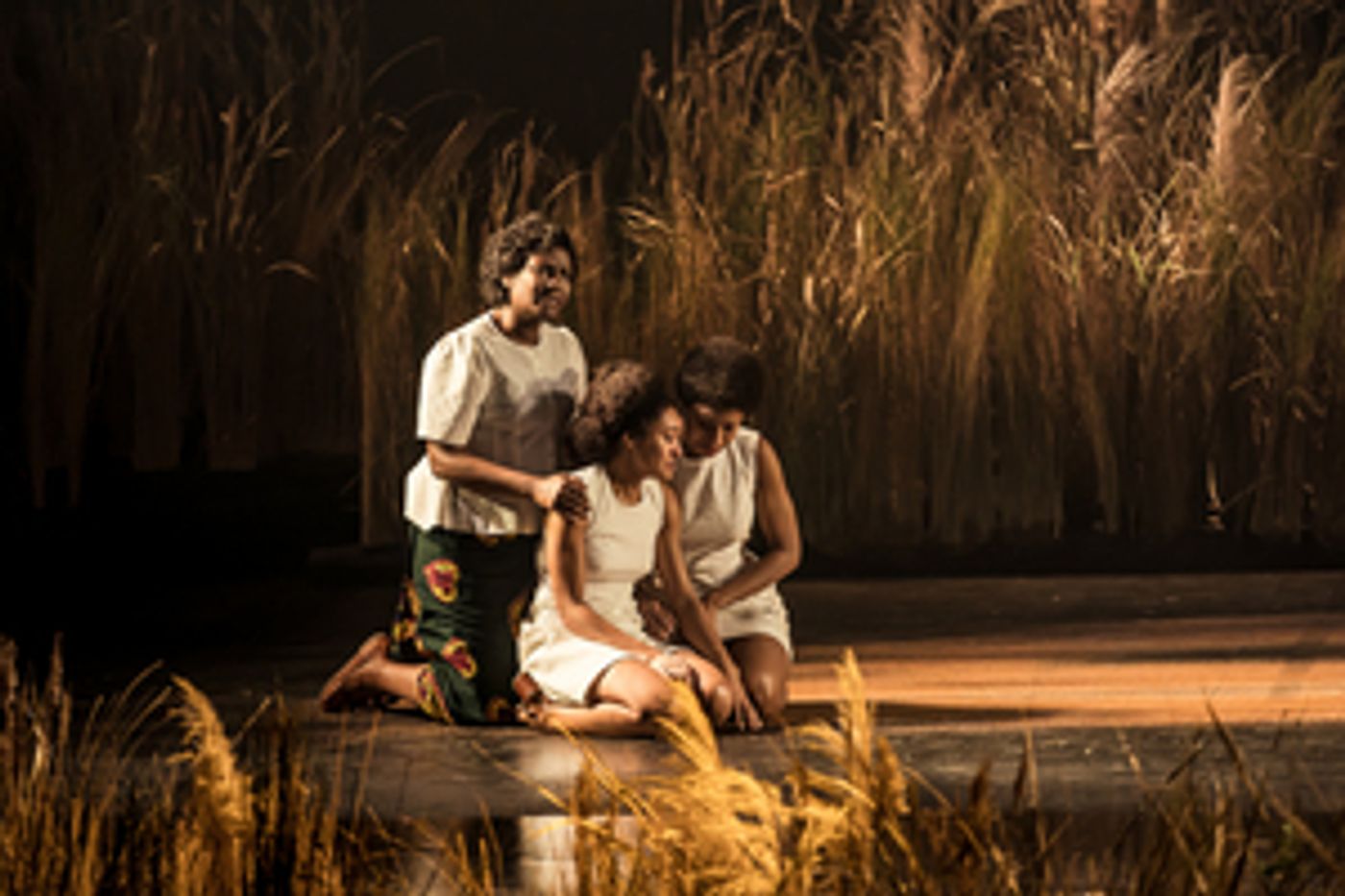Review: THREE SISTERS, National Theatre

![]() When confronted with the name Chekhov, hot Russian summers and country houses are probably what immediately spring to mind.
When confronted with the name Chekhov, hot Russian summers and country houses are probably what immediately spring to mind.
It's all change for Inua Ellams' new adaptation at the National Theatre, as events are transported to Nigeria on the brink of civil war; the play is set between 1967 and 1970, as the Igbo in Biafra make a bid for total freedom following the country's independence from the UK. Nadia Fall directs this enlightening and heartbreaking new production.
Everyone is gathering for Udo's birthday - most are full of hope for the future, though others are wary of the very real prospect of war erupting and uprooting their way of life. While Udo is still searching for her purpose in life, her eldest sister Lolo is getting sucked further into her work as a teacher at the local school, and her other sister Nne has been stuck in an arranged marriage for many years. The arrival of soldiers in the village, including the philosophical Ikemba, and their brother's love for Abosede are set to change their lives forever.
When I saw my first Chekhov play I was taken aback by how funny it was, but this is on a whole new level; Ellams' characters are brimming with life, and within seconds you are lost in their world - laughing along as if you've known them for years, later on becoming moved and aggrieved over the situation in which the sisters find themselves. The audience reactions (from laughter to gasps and cheers) are testament to how invested you become.
The new setting is a masterstroke. Over the course of the play we are taken through the build-up to, and escalation of, war, which ultimately leads to the loss of the Biafran dream - the background conflict creates a feeling of urgency within the play that drives the drama on. The play also serves a bit of an educational purpose to those of us unfamiliar with this particular bit of history; given some of the rhetoric that has been generated by both Brexit and the recent election campaign, it feels rather timely to be telling this story now.
At a time when the British Prime Minister thinks that European migrants have been able to "treat the UK as if it's part of their own country", it's quite apt to show one of many examples of the disastrous consequences of the UK meddling in the affairs of another continent, treating that as if it was their own.
Katrina Lindsay's set design takes you into the heart of the Owerri village in which the action occurs, moving around different parts of the house and grounds as the acts progress. Peter Mumford's lighting design, together with Femi Temowo's compositions, provides atmosphere - and Amarachi Attamah's appearance the Chant Poet heightens this at key moments in the play.
Abosede is not Igbo, so is more of an outsider in this play than Natasha in the original, and subject to more than just snobbery from the sisters; it's biting and vicious, but the stakes are arguably higher. Ronke Adékoluejo's performance is so charismatic that even when Abosede is at her cruellest she is incredibly watchable. Sule Rimi is full of surprises as Nne's husband Onyinyechukwu; on the face of it quite gentle, but gradually hardened by Nne's behaviour. It's perhaps a more realistic reaction to her betrayal, and contrasts well with Tobi Bamtefa's floundering (and also cuckolded) Dimgba.
The bond between the titular women that comes through very strongly, thanks to terrific performances from Racheal Ofori (Udo), Natalie Simpson (Nne) and Sarah Niles (Lolo). Niles is especially impressive as the intellectual, but increasingly world-weary, eldest sister; her regret at missing her chance with Onyinyechukwu is incredibly affecting, even when he shows his true colours later on.
At around three hours long, it may seem a bit of a daunting prospect, but the first two acts flash by so quickly that you don't really notice - after the interval it does slow a little, as it becomes darker and more melancholic, reaching for an ending, but it is well worth investing your time. An intensely gripping production that refreshes Chekhov in an unexpectedly effective manner.
Three Sisters is at the National Theatre until 19 February, 2020
Picture credit: The Other Richard
Reader Reviews

Videos

